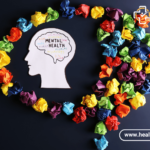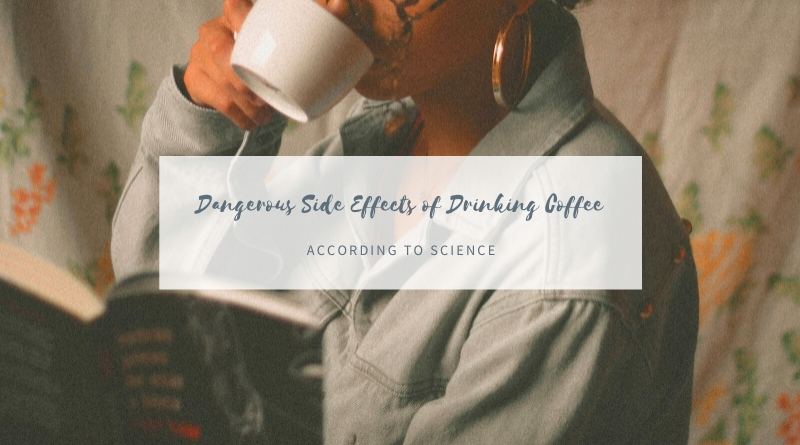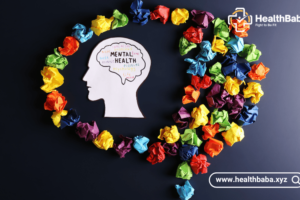Coffee is a staple drink for many people. However, there are some dangerous side effects of drinking coffee according to science. The caffeine in coffee can cause insomnia and headaches. Caffeine overdoses can also lead to anxiety, irregular heartbeat, and even death. If you love your coffee then try not to have more than two cups per day or cut it out altogether to avoid these side effects.
This cup of joe may be good for many but there are downsides.
The most popular drink in the United States is coffee. The average American drinks 3 cups a day which is about 400 milligrams of caffeine. Many people believe that drinking coffee has been connected to being healthy, but science is giving us a different answer. In this article, we will be discussing some of the risks of drinking coffee and how it may not be so great for you.
An increase in blood pressure
A recent study found that drinking too much coffee can lead to some dangerous side effects including insomnia, high blood pressure, and heartburn. The researchers analyzed the medical records of over 1 million people who were diagnosed with stroke, heart disease, or diabetes. This means that those who drink 4 cups of coffee per day are 2 times more likely to develop these health problems according to the study.
Elevated anxiety levels
If you drink more than 3 cups of coffee a day then you might be at risk for anxiety. The reason is that the body releases more of the stress hormone cortisol. This substance triggers a chain reaction of release and action of other hormones, such as adrenaline and noradrenaline. These hormones cause an increase in heart rate, higher blood pressure and breathing rates. Coffee also causes withdrawal symptoms when it’s not consumed regularly, which can result in feelings of anxiety or restlessness.
Reduced fertility
It’s no secret that many people love their morning cup of coffee. The aromatic brew can be found everywhere from office break rooms to drive-thrus. But according to science, the unfathomable amount of caffeine in coffee can have adverse effects on health, both short-term and long-term.
Regular headaches
Caffeine is a stimulant and can cause headaches, sleep disturbance and high blood pressure, but it has many benefits. With warnings of caffeine withdrawal and addiction, do we really need to limit our intake?
Coffee is thought by so many to be a necessity in life – the morning ritual that will keep us going all day. But there are some dangers associated with drinking too much coffee. Coffee causes headaches, sleep disturbance and an increase in blood pressure.
Caffeine counts
Many people drink coffee and assume the worst-case scenario is an upset stomach. But caffeine does not always provide a healthy boost of energy and motivation – it has specific, measurable, and often dangerous side effects.
According to a study at Johns Hopkins University, caffeine can reduce blood flow to the heart and increase blood pressure significantly. Patients with heart problems such as angina or previous heart attack are warned not to consume anything containing caffeine, as caffeine may trigger a cardiac event.
Disrupted sleep quality
No matter how much people try to convince themselves that coffee is not bad for them, it often seems that they are wrong. People drink coffee in the morning to wake up their brain and stay alert. However, in recent years there have been many studies in medical journals warning about the dangers of drinking coffee in the morning. These side effects include insomnia, headaches, increased risk of cardiovascular disease, hyperactivity in children who drink caffeinated beverages, and more.
What are short-term effects?
In recent history, coffee has been one of the most popular drinks worldwide. It’s often praised for its ability to help diminish the effects of a hangover, increase alertness and awareness, and reduce risk of diabetes. But is it all good? Recent studies have shown that coffee may significantly raise the risk of certain cancers including bladder cancer and prostate cancer.
Caffeine and young people
Coffee is a drink that many people drink every day without giving it a second thought. You might think that a little coffee can’t hurt you- after all, it’s just a little drink. But according to science, there are dangerous side effects of drinking coffee. For starters, caffeine can cause an irregular heart beat and disrupt your sleep cycle. It may also worsen asthma symptoms and raise blood pressure.
Some of the benefits you might get from your favorite cup of joe
The benefits of a cup of coffee are plentiful. It provides a much-needed pick me up in the morning, and there’s even evidence that it can prevent cancer. But what about the side effects? Coffee isn’t all good, as it might cause insomnia and anxiety, among other things. In this article, we’ll talk about some of the main side effects of coffee as well as how you can avoid them.
First the bad news about caffeine (and coffee)
People who drink coffee might be interested to know the not-so-glamorous side effects of caffeine. Caffeine is a natural stimulant and can lead to anxiety, insomnia or headaches among other things. Now for the good news: Dr. Anqi Shen, a psychiatrist at Penn State University’s College of Medicine found that there are plenty of people who drink coffee and enjoy it without adverse consequences.
Now the good news about caffeine (and of course coffee)
Coffee is a staple drink in many households around the world. In this article, we will discuss the dangers of drinking coffee according to science. Coffee contains caffeine which can have an impact on our mood and energy levels. Large amounts of coffee can lead to a dependence on it which can lead to a range of health problems such as insomnia, headaches, and addiction. Caffeine affects every person differently but most people start feeling its effects within 30 minutes-1 hour after consumption.
















Add Comment